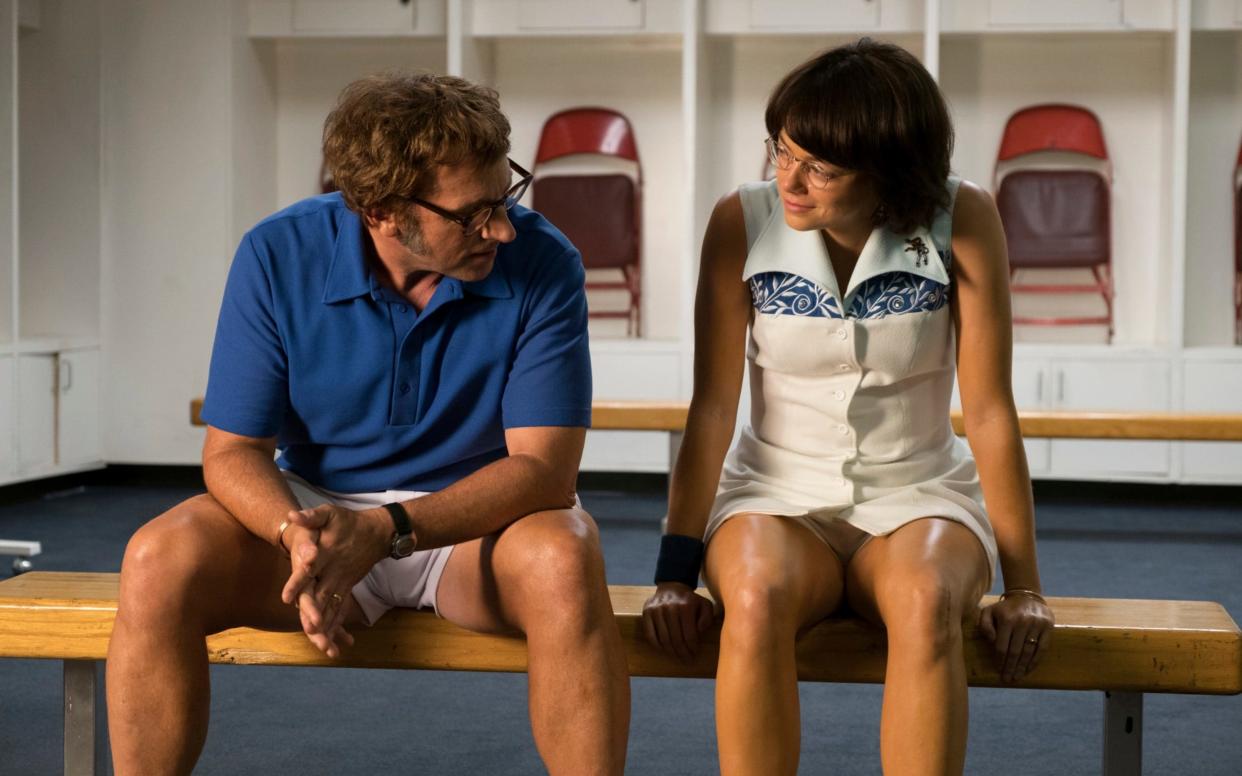Battle of the Sexes review: far richer than the average sports drama

Dir: Valerie Faris, Jonathan Drayton Cast: Emma Stone, Steve Carell, Andrea Riseborough, Sarah Silverman, Elisabeth Shue
Who was the underdog in the 1973 clash between women’s tennis champion Billie Jean King and the challenger, Bobby Riggs? One was a player at the height of her powers, yet she was a victim of institutionalised misogyny and was struggling with her sexuality. The other was an over-the-hill hustler more concerned with publicity stunts than hard training, but he was going through the breakdown of his marriage and attempting to reconnect with his adult son.
What Valerie Faris and Jonathan Dayton’s multi-layered and subtle film makes clear is that both King and Riggs were struggling for some kind of survival in the ‘Battle Of The Sexes’ match, and neither arrived – or left – sure of their success.
This is less a story about tennis, then, and more one about money, power and sex. Emma Stone (winner of this year's Best Actress Oscar for La La Land) plays King, who has broken with the tennis establishment, represented here by Jack Kramer (Bill Pullman), over their wildly sexist allocation of prize money. King sets up her own all-female tennis association, though adding to the strain is the growing realisation – through a blossoming relationship with hairdresser Marilyn (Andrea Riseborough) – that she is gay.
She therefore ignores Bobby Riggs’ (Steve Carell) provocation – that women earn less because any man could beat any woman, any time – as an unhelpful distraction, until the spectacle threatens to torpedo her whole endeavour. Yet the clownish Riggs is not without pathos, unable to control his own worst impulses even when they threaten his relationships with his wife and son.
So in a film stuffed with incident, aside and period detail, the match is just one tiny part of the whole, shot largely at a distance and with more emphasis on the audience than the shots fired. Faris and Dayton are interested in how the players got there, not in the game itself, and their emphasis on the whole environment of the match creates a far richer and chewier film than the usual triumphant sports drama.
Merely getting there is a victory for Riggs, though the stakes for King, with the weight of the entire women’s movement on her back, are far higher. Faris and Dayton pile on the personal drama until it collapses into an odd connection between the two battlers. They’re both born competitors trying to overcome work past their own break points, and the sex that divides them matters less than their shared determination to beat the odds.
Battle of the Sexes will be showing in the London Film Festival, and opens in the UK on November 24


